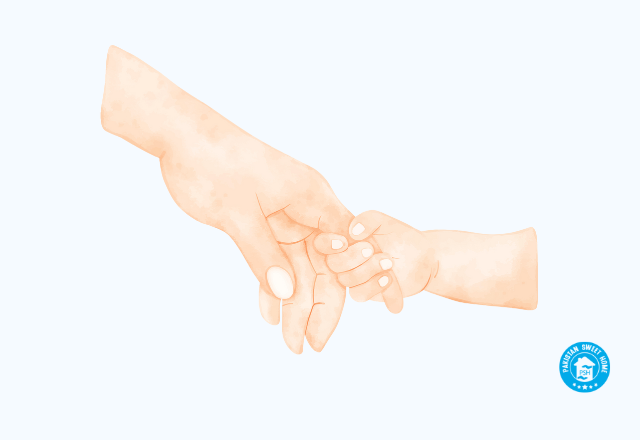
- DONATE
- SPONSOR A CHILD
- Zakat calculator
- SIGN IN
-
- About Us
- FAQ's
- Contact
- Get Involved
- Admissions
- Sign In
- SPONSOR A CHILD ZAKAT CALCULATOR DONATE
-
info@pakistansweethome.org.pk
(051) 4865856
+92 335 1118477
When a child feels invisible in their own home, the emotional scars can last a lifetime.
Day after day, they grow up without warmth, without support — left to navigate life alone. This isn’t just loneliness — it’s neglect that quietly shapes broken confidence, poor decisions, and painful relationships.
But with awareness, healing, and effort, this cycle can be broken — and replaced with connection and care.
Let’s explore uninvolved parenting, why it happens, how it affects children, and how to change it.
Uninvolved parenting, also called neglectful parenting, is when parents only meet basic physical needs. They provide food, clothing, and shelter but offer little emotional support, guidance, or consistent discipline.
Children raised in such environments often lack nurturing, emotional support, and clear parental direction. As a result, they navigate everyday choices and major life decisions largely on their own.
Uninvolved parenting is often judged harshly. But it’s important to note that it’s not always a conscious choice.
Most parents can relate to feeling overwhelmed, exhausted, or stretched thin. Maybe you’ve handed your child a screen just to steal a few moments of peace—and felt guilty afterward. However, occasional lapses in attention don’t define uninvolved parenting.
Uninvolved parenting is not about a single moment of fatigue or stress. It’s a consistent pattern of emotional distance and minimal engagement with a child’s life, needs, and growth.
Here are some key signs of uninvolved parenting:
Uninvolved parents are often absorbed in their own lives, such as work stress or personal struggles. This leaves them with little time or energy to focus on their children’s needs. This self-focus can lead to neglecting emotional needs and, in more extreme cases, basic caregiving responsibilities.
For many, emotional attachment to their child comes naturally. But in uninvolved parenting, there’s a lack of warmth, nurturing, and connection. Children may feel unseen, unloved, or emotionally abandoned.
Uninvolved parents often show little curiosity or involvement in their child’s education, hobbies, or social life. Skipping school meetings, not asking about homework, or ignoring achievements are common behaviors.
There are usually no clear rules or consequences in the home. Unless the child’s behavior directly affects the parent, discipline is often ignored. Academic performance or manners are rarely addressed or encouraged.
Conversations tend to be surface-level or transactional. These parents rarely talk deeply or offer emotional support, leaving the child feeling alone and unsupported.
Uninvolved parenting doesn’t always stem from a lack of love; it often results from personal struggles. External pressures or past experiences can contribute to this style of parenting as well. Understanding what leads to this parenting style can help create empathy and offer pathways to change.
Parents dealing with depression, anxiety, or other mental health disorders may feel emotionally drained or disconnected. These struggles can make it difficult for them to respond to their child’s emotional or physical needs.
Addiction to drugs or alcohol can interfere with a parent’s ability to provide care, supervision, or affection. In such cases, their focus shifts to meeting their own needs, often at the cost of their child’s well-being.
Some parents were never taught how to be emotionally available or supportive during their upbringing. This is particularly true if they were raised in a neglectful environment themselves. Without positive role models, they may unknowingly repeat the same patterns.
Financial hardships, job instability, single parenthood, and insufficient support can leave parents feeling overwhelmed and drained. When survival becomes the primary focus, emotional connection often takes a back seat.
Teen parents or those with unexpected pregnancies may lack emotional maturity or parenting resources. This can lead to a distant or hands-off approach in raising their children.
Ongoing problems between spouses or family members can shift a parent’s attention away from their children. The home environment may become emotionally unstable, leaving kids feeling ignored.
Children raised by neglectful parents often lack emotional connections at home. Without support or guidance, they either rely only on themselves or seek comfort from others. Research consistently shows that such parenting leads to low self-esteem, poor decision-making, and difficulty managing emotions.
Here are some of the common consequences:
Uninvolved parenting can show up in many forms, depending on the child’s age. It can involve not interacting with young children, neglecting supervision, or ignoring serious issues like violence.
Common Signs of Uninvolved Parenting Include:
When a child is going through emotional struggles—such as bullying—uninvolved parents don’t offer comfort or support. Instead, they might dismiss the situation or suggest someone else help, like a teacher or friend.
If a child acts out violently, these parents may not discipline them at all or may punish them without explanation. Without consistent consequences, the child is likely to repeat the behavior.
When teens face academic issues or begin experimenting with drugs or alcohol, uninvolved parents tend to ignore it. This lack of guidance often leads to continued risky behavior.
Neglectful parents may ignore their baby's physical and emotional needs, preventing a secure bond.
Believing their children should be independent, uninvolved parents rarely offer help or oversight—even when it’s clearly needed. If the child’s actions don’t directly affect them, they remain disengaged.
Whether a child fails or succeeds, these parents rarely show concern. They offer little to no encouragement, missing opportunities to motivate or praise their children.
If you grew up with emotionally distant or uninvolved parents, recovery is possible.
Here are some steps that can help:
Parent coaching offers practical tools to improve family communication, handle conflict, and discipline effectively. It teaches how to build warmth, structure, and consistent consequences into your parenting style.
Connecting with other parents facing similar challenges provides emotional support and introduces new strategies through shared experiences.
Therapy can help you explore how your childhood affects your parenting. It also supports you in breaking negative cycles and developing healthier habits.
Take an interest in your child’s life—listen to their thoughts, join in their activities, and be emotionally available. Strengthening this bond creates trust and emotional safety.
Educate yourself through parenting books, podcasts, online resources, or local classes. Building knowledge boosts confidence and provides proven strategies.
Reparenting is about meeting your own emotional needs as an adult and healing past wounds. It involves replacing harmful habits with healthier ones, setting boundaries, and building better relationships. These changes can positively transform your parenting journey, too.
Authoritative parenting balances warmth with structure. It promotes communication, sets firm boundaries, and fosters independence—offering a balanced, effective parenting approach.
In conclusion, uninvolved parenting can have significant and lasting effects on children's development, leading to emotional, social, and behavioral challenges. By understanding its characteristics, causes, and impacts, we can take steps to prevent or address this form of parenting.
Parents must understand the importance of being involved and providing the support and guidance children need. Coping strategies, such as seeking professional help, improving communication, and fostering a nurturing environment, can help mitigate the effects of uninvolved parenting.
Another word for uninvolved parenting is neglectful parenting. This style is characterized by a lack of emotional involvement, minimal supervision, and little responsiveness to a child's needs.
An example of negligent or uninvolved parenting is when a parent fails to provide basic emotional support. They may skip school meetings, ignore emotional struggles, or leave kids unsupervised without checking in.
Children who grow up with no rules may struggle with self-discipline, respect for authority, and decision-making. They may struggle with relationships, behavioral problems, low self-esteem, and poor academic performance.
Signs of neglectful parenting include:

WRITTEN BY
Dr. Ayesha Khan (Child Welfare)
Dr. Ayesha Khan is a dedicated social worker with over 15 years of experience in child welfare and community development. As a passionate advocate for vulnerable children, she has worked tirelessly to create safe and nurturing environments for orphans and underprivileged youth. Dr. Khan holds a PhD in Social Work and has specialized in developing sustainable programs that support the holistic development of children. Through her work at Pakistan Sweet Home, she aims to raise awareness and inspire action through her insightful and compassionate writing.
Dr. Ayesha Khan is a dedicated social worker with over 15 years of experience in child welfare and community development. As a passionate advocate for vulnerable children, she has worked tirelessly to create safe and nurturing environments for orphans and underprivileged youth. Dr. Khan holds a PhD in Social Work and has specialized in developing sustainable programs that support the holistic development of children. Through her work at Pakistan Sweet Home, she aims to raise awareness and inspire action through her insightful and compassionate writing.
Positive Parenting: What It Is and Why It Matters

Gentle Parenting: A Compassionate Approach to Parenting
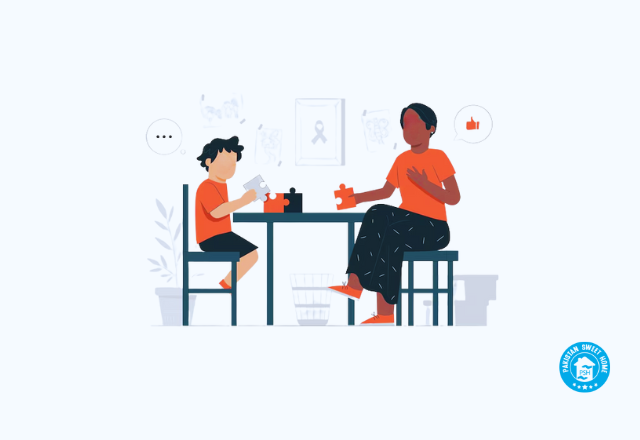
Gentle Parenting Examples: Lead with Understanding and Calm
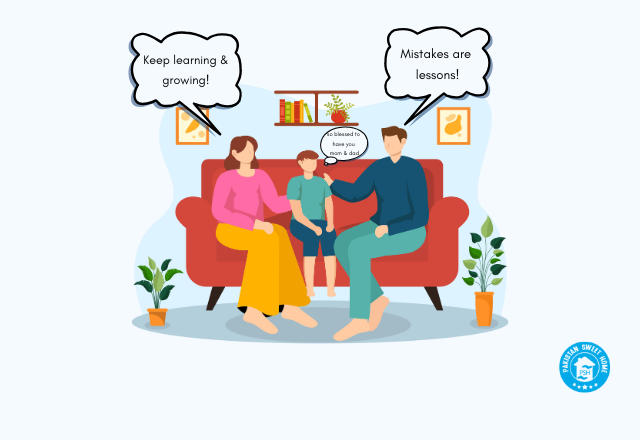
Understanding Authoritative Parenting: Effects & More
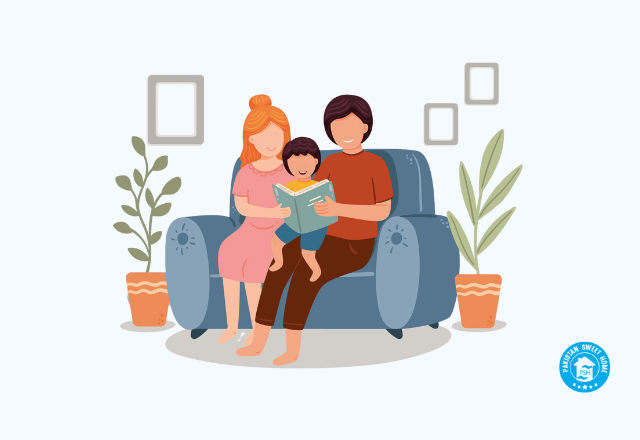
Authoritarian Parenting: What It Is, How It Works, & What to Avoid
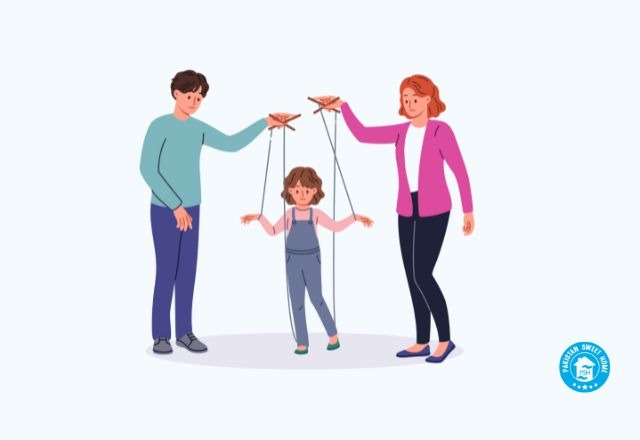
Raising Without Rules: A Look into Permissive Parenting

Types of Parenting: Differences, Impact, and Examples
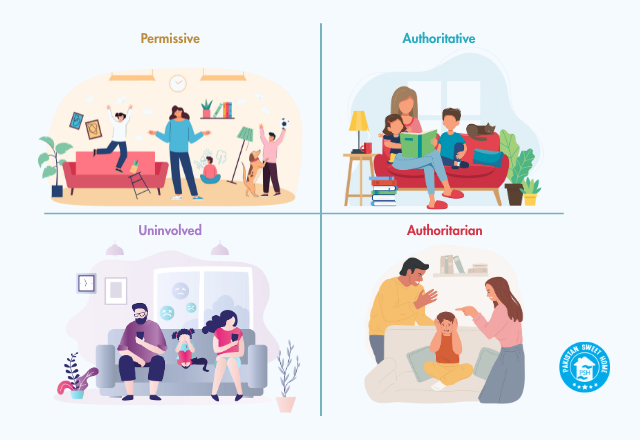
A Comprehensive Guide on Single Parenting
